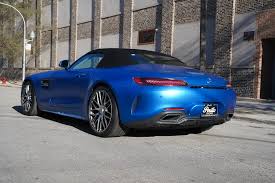A discussion on the environmental friendliness of Blue Vinyl Wraps
"Are Blue Vinyl Wraps Environmentally Friendly?"
In recent years, vinyl wraps have become a popular choice for vehicle customization. Among the many options available, blue vinyl wraps are particularly favored for their striking appearance. However, as environmental concerns continue to grow, questions arise about the eco-friendliness of such materials. Are blue vinyl wraps a sustainable choice, or do they contribute to environmental harm?
"The Composition of Vinyl Wraps"
Vinyl wraps are made from polyvinyl chloride (PVC), a type of plastic. PVC production involves the use of fossil fuels, and the process can emit harmful chemicals, such as dioxins, into the environment. Additionally, many vinyl wraps are coated with adhesives and dyes, which may contain volatile organic compounds (VOCs). These substances can contribute to air pollution during application and disposal.
Blue Vinyl Wraps, in particular, often require additional pigments and dyes to achieve their vibrant color. While these additives enhance aesthetics, they may increase the environmental footprint of the product.
"Durability and Longevity"
One argument in favor of vinyl wraps is their durability. A high-quality wrap can last between five to seven years, protecting the underlying paint and reducing the need for frequent repainting. This longevity can decrease the overall environmental impact compared to alternative customization methods that may require more frequent maintenance.
Furthermore, vinyl wraps can be removed without damaging the original paintwork, which means vehicles can be restored to their original state without additional resource-intensive processes. This reusability can be seen as a small step toward sustainability.
"Recycling Challenges"
A major drawback of vinyl wraps is their recyclability—or lack thereof. PVC is notoriously difficult to recycle due to its complex composition. Most vinyl wraps end up in landfills, where they can take decades to decompose. During this time, they may release microplastics and harmful chemicals into the environment.
Some manufacturers are working on developing more eco-friendly alternatives, such as biodegradable or recyclable wraps. However, these options are not yet widely available or affordable for most consumers.
"Making an Informed Choice"
For those concerned about the environmental impact of blue vinyl wraps, there are ways to make a more responsible choice. Opting for wraps from manufacturers that prioritize sustainability or use low-VOC adhesives can help reduce harm. Additionally, proper disposal methods, such as returning used wraps to specialized recycling programs, can mitigate some of the environmental risks.(Matte Vinyl Wraps)
In conclusion, while blue vinyl wraps offer aesthetic and protective benefits, they are not inherently environmentally friendly due to their PVC composition and recycling challenges. As consumers and industries alike strive for greener solutions, advancements in materials and processes may eventually make vinyl wrapping a more sustainable option. Until then, it's essential to weigh the pros and cons carefully before making a decision.

